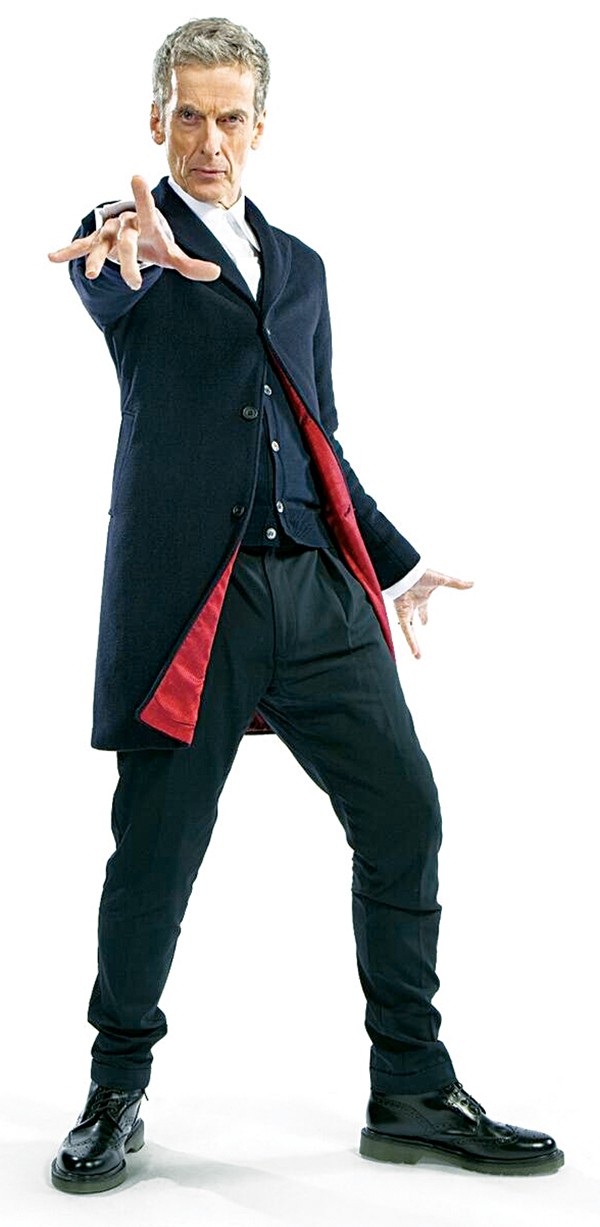Doctor Who is now entering its 51st year. The BBC sci-fi TV show is older than Harry Potter, Star Wars, and Star Trek. Its first episode, which was delayed because of BBC’s coverage of the Kennedy asassination, debuted in England the same year that Astro Boy, the first ever anime, debuted in Japan. Can a show that is as old as an entire genre still have something to say?
The first actor to play the Doctor was William Hartnell, who was 55 years old at the time of the 1963 debut. After three years galavanting through time and space in the TARDIS, Hartnell’s deteriorating health forced him to retire. So the writers came up with a way to keep the popular show going without its star. When Time Lords like the Doctor are near death, their bodies regenerate, changing appearance and giving them new life. The number of total regenerations a single Time Lord could get was set at 12, which, in 1966 probably seemed like a large enough number that the writers would never have to deal with what happened when the Doctor ran out.
 BBC.co.uk/doctorwho
BBC.co.uk/doctorwho
Peter Capaldi as Doctor Who
After being cancelled in 1989, Doctor Who regenerated in 2005. For the first 26 years of the show’s run, it was a series of half-hour cliffhangers that bound five or six episodes together under one long story arc. When it returned, it was as series of one-hour, stand-alone episodes with only the loosest of a season-long arc. The new Who was instantly popular, thanks in large part to the onscreen chemistry between the ninth Doctor (Christopher Eccleston) and Rose (Billie Piper), the Doctor’s human traveling companion. When Eccleston decided that one year as the most recognized man in nerddom was enough, he was replaced by the 10th Doctor (David Tennant), and Piper stuck around long enough to get the new guy established and set the new Who up for its best years. Long-form television was back in fashion, and Doctor Who‘s plot machinations became increasingly byzantine, as the Doctor’s troubled past in the Time War caught up with him. When Tennant left the TARDIS in 2010, he was replaced by the 11th Doctor (Matt Smith), who was initially well received but never achieved the same depth of fan love as Tennant. Smith stayed for three years until being killed off during the show’s emotional 50th anniversary special. And so, here we are, with Peter Capaldi premiering as the once-thought-impossible 12th Doctor.
Doctor Who fandom is the oldest and most fanatical of the nerd subtribes, and during the run up to the 50th anniversary, showrunner Steven Moffat seemed determined to serve up as much red meat to the fans as possible. The series immersed itself in its own mythology, becoming a show mostly about itself, a recursion that the character of the Doctor, who once famously described the universe as a “big ball of wibby wobbly timey-wimey stuff,” would appreciate.
Moffat surrounds the new Doctor with fan-favorite characters Madame Vastra, Jenny Flint, and Strax, their Sontaran comic relief. But Moffat doesn’t give the new guy much to do. When Capaldi is finally unleashed late in the show to confront the cyborg villain, he hints at a new iron hand under the Doctor’s jolly velvet glove. But overall, Capaldi’s first episode seems flat and uninspired. If he is to be the actor to regenerate a franchise crushed under the weight of its own history, Moffat is going to have to find new places for the TARDIS to go.